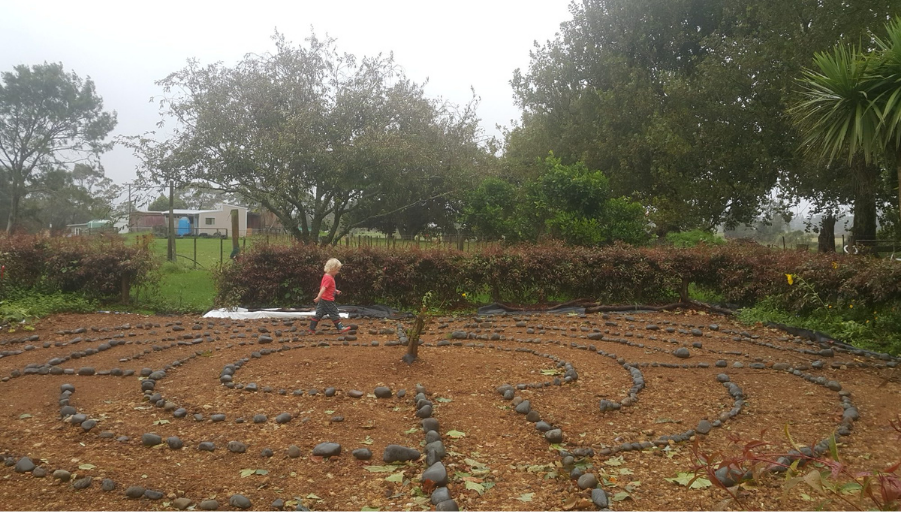Come, walk the Peacemakers Labyrinth.
The labyrinth is an ancient pattern found in many sacred traditions and cultures.
At Peacemakers we feel it is an excellent tool for meditation and contemplation.
Our labyrinth is used by many people but for different purposes. As you follow this walk, here are a few ideas of how you could be thinking, listening, or expressing.
Expressing gratitude, remembering a loved one, paying attention to your breathing and the environment, quietening your thoughts, or letting go of something.
Release, receive, and return.
What is a Labyrinth?
The word Labyrinth comes from the Greek labyrinthos and describes any maze-like structure with a single path through it.
Labyrinths and labyrinthine symbols have been dated as far back as the Neolithic Age found carved on rocks and painted or scratched on pottery.
The Labyrinth symbol was popular throughout the Roman Empire as a protective and decorative symbol on mosaic floors and they were also constructed outdoors as a playground for children and a test of skill for soldiers on horseback.
There is no “right” way to walk and you may choose to walk slowly, or fast, to skip, run, walk backward, or sideways, depending on your mood, inspiration, or invitation.
Typically you start at the entrance, follow the path to the center and then follow the same path out. The beauty of this symbol is how it can mean different things to different people.
Diverse paths find expression on this unifying way. Allow the experience to be a metaphor for your life and discover what this ancient path means for you today. You walk a labyrinth to learn its lessons.
You may walk for many reasons, including curiosity and you may find your reason as you begin to walk. Here are some possible uses:
- Prayer and discernment
- Searching for meaning
- Self-reflection
- Processing grief
- Gratitude and joy
- Healing and wholeness
- Mindfulness meditation
- Mind-heart-body connection
- Connection with creation
Discover more about the Labyrinth here.
Come and walk the Peacemakers Labyrinth and find a new rhythm.

